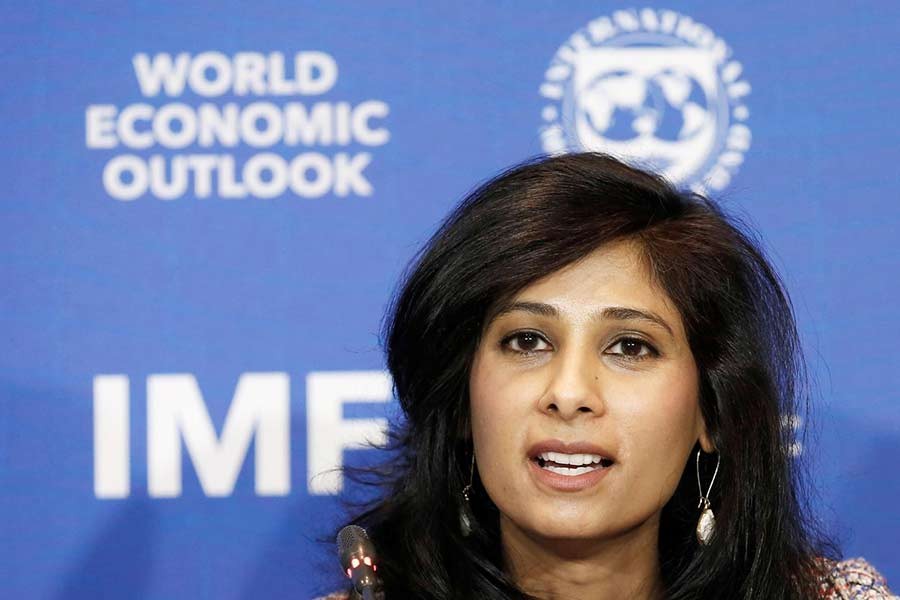
Published :
Updated :

The International Monetary Fund expects its next economic forecast to trend lower as the world deals with new pandemic damage and a sluggish recovery.
The organisation is slated to release its next growth projections on June 24, roughly two months after it predicted in April that the coronavirus recession would be the worst downturn in nearly a century.
The updated projections 'will be very likely worse' than April's figures, Gita Gopinath, chief economist at the IMF, said in a video released Friday, reports Business Insider.
"One has to be quite concerned about the path of recovery," she said during the Asian Monetary Policy Forum.
In adjusting its economic forecast, the organisation considered the costs of labor reallocation, the depth of the health crisis, bankruptcies, and consumer spending habits.
"Many of these variables point to significant scarring effects," Gopinath added.
The IMF's April estimates already pointed to a bleak economic downturn.
Global gross domestic product was expected to shrink 3 per cent in 2020 in the organisation's base case, while a pandemic lasting through 2020 would push most of the world's recovery into 2022.
A coronavirus resurgence in 2021 would result in two consecutive years of sharp economic contraction, the IMF said.
Two months later, 'profound uncertainty' still clouds much of the world's path forward, Gopinath said.
While regions with strict containment measures like China have posted a sharp rebound from their virus-induced lows, new outbreaks in several US states risk prolonging the pandemic in key economic superpowers.
Coronavirus fallout isn't the only factor dragging on the IMF's outlook.
The chief economist pointed to rising tensions between China, the US, and Hong Kong as an emerging risk that could weigh on a rebound even after the virus threat fades.
While Asian economies are largely better positioned to ride out a downturn compared to other emerging markets, inflamed trade tensions could add to the region's long-term scarring, Gopinath said.
"We have to think about this much broader than just this crisis. Of course, there are many other tensions that are developing," she said.
"All of that has very big implications for global supply chains, the location of production going forward, the risks to globalisation, and the rise of protectionism."


 For all latest news, follow The Financial Express Google News channel.
For all latest news, follow The Financial Express Google News channel.